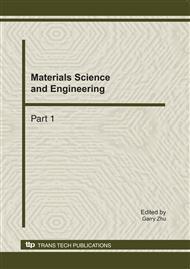p.899
p.904
p.909
p.914
p.920
p.925
p.930
p.936
p.940
A Hybrid Nested Partitions Algorithm Combing with Genetic Algorithm for Job Shop Flexible Resource Scheduling
Abstract:
In this paper, we formulate the Job Shop Flexible Resource Scheduling (JSFRS) problem, and presents a hybrid nested partitions algorithm combining genetic algorithm in sampling scheme for the JSFRS problem. The major part of this work is a generic partitioning scheme was implemented and the Resource Allocation Procedure was incorporated into the NP method framework. Simulation results support our theoretical results and illustrate that the hybrid nested partitions algorithm work as designed and the performance improvements associated with flexible resource scheduling are substantial.
Info:
Periodical:
Pages:
920-924
Citation:
Online since:
January 2011
Authors:
Price:
Сopyright:
© 2011 Trans Tech Publications Ltd. All Rights Reserved
Share:
Citation:


